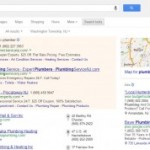 For many years, Press Releases have been a staple for SEO. They come from sites that typically have a solid PageRank, and allow you to control the anchor text of your links. They’re kind of a link builder’s dream. But now, Google has declared that you should not use Press Releases in this manner to enhance your site’s ranking on search engines. In fact, they have said that you should use a “no follow” tag for all links in Press Releases. (I wonder if this is because people started getting Matt Cutts’ page to rank for anchor text only found in Press Releases).
For many years, Press Releases have been a staple for SEO. They come from sites that typically have a solid PageRank, and allow you to control the anchor text of your links. They’re kind of a link builder’s dream. But now, Google has declared that you should not use Press Releases in this manner to enhance your site’s ranking on search engines. In fact, they have said that you should use a “no follow” tag for all links in Press Releases. (I wonder if this is because people started getting Matt Cutts’ page to rank for anchor text only found in Press Releases).
However, in light of this, press releases can help your SEO, even with Google’s new rules. Here’s what you should still be doing with press releases, even in light of Google’s change.
Use Press Releases to actually spread news. Press releases are useful to get attention to your business, but you need to have something noteworthy to write about. If you’re writing about “Company X provides air conditioning units to homeowners,” you’re not going to get picked up and you’re wasting your time. If you write about “Company X Offers Free A/C Units to Hurricane Sandy Victims,” you may get some attention.
Use Press Releases to rank for keywords. Try to rank the actual Press Releases themselves. Utilize the keywords you want to rank for in the front of your title and throughout the release. Have the Press Release rank for keywords instead of helping your site rank for keywords. If written well, the press releases can even generate leads on their own.
Use Press Releases for brand awareness and reputation control. Using the technique above, rank for your company name. Control the first page of the search results to help bury negative reviews or prevent your competition from saying anything slanderous that may appear in search results.
And yes, it’s probably still save to use them for links – just don’t depend on them. Google will not instantly penalize people for optimized links in Press Releases. The task of differentiating release made before and after the rule change is monumental, and Google doesn’t want to penalize people for optimizing Press Releases in a certain way in the past, at a time when this type of optimization was allowed. The releases also get picked up by other sources. Just don
Just because Google put out some new rules on Press Press releases, doesn’t mean you should disregard them. There’s still a lot of value to them. You just need to use them the right way.
Can press releases help SEO with Google’s new rules? Yes, unless you’re still trying to spam with them. But, in that case, you probably shouldn’t be doing SEO anyway.





SEO used to mean “getting links” to many people. Never was.. just one part of producing content for people who are searching.
Now maybe we should be calling is “Searcher Optimization”
That’s probably a better title. Or we can just try doing the online version of real marketing, or better yet combining online and offline marketing, and letting the SEO basically happen.
Obviously using proper site structure, coding, etc….but for Pete’s sake can we stop with most of the crappy directory listing, bad press releases, and spammy comments?! People need to do their jobs.
Better content is the best answer.. but one man’s crappy is another’s gem.
I really don’t mind if someone wants to list the best Bieber sites in a directory. I won’t visit it, but there’s space for it.
The auto-generated crap is what fits the “spam” label. Remember, the word “spam” come from Monty Python sketch where you can order anything but always get spam.
When the Bieber sites are in my best peanut butter listings, I’m mad. When there are 4 million Bieber pages generated to rank for peanut butter, I’m calling Google for help
Yeah, I totally agree. It’s the crap directories that I can’t stand. The ones with little to no context, auto generated, etc.
If you have a list (especially one that people would actually use/benefit from) of relevant pages – that could be some good stuff!
(end rant)